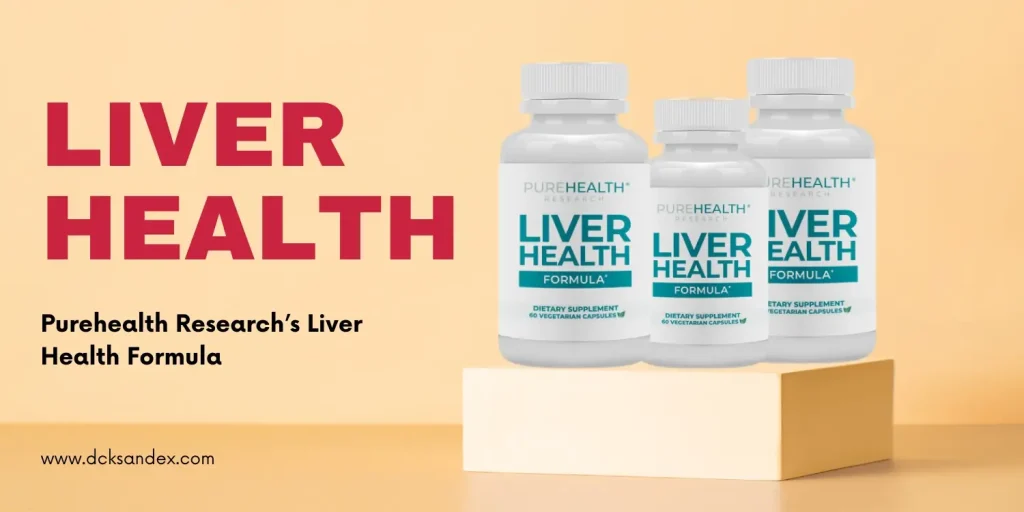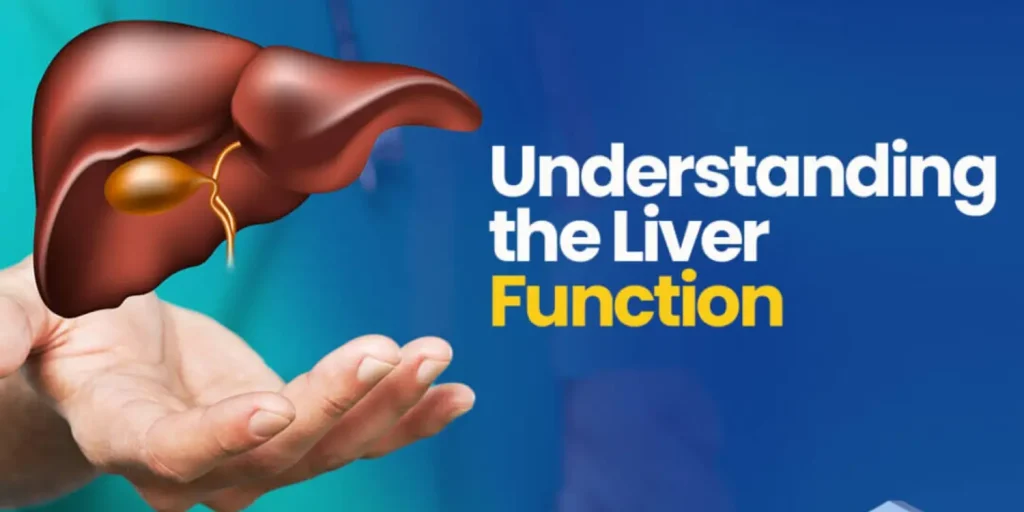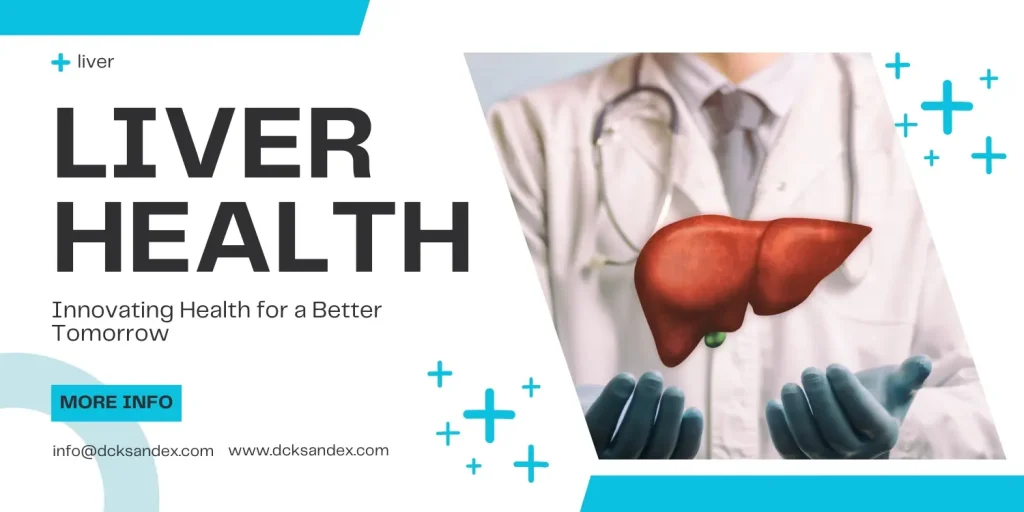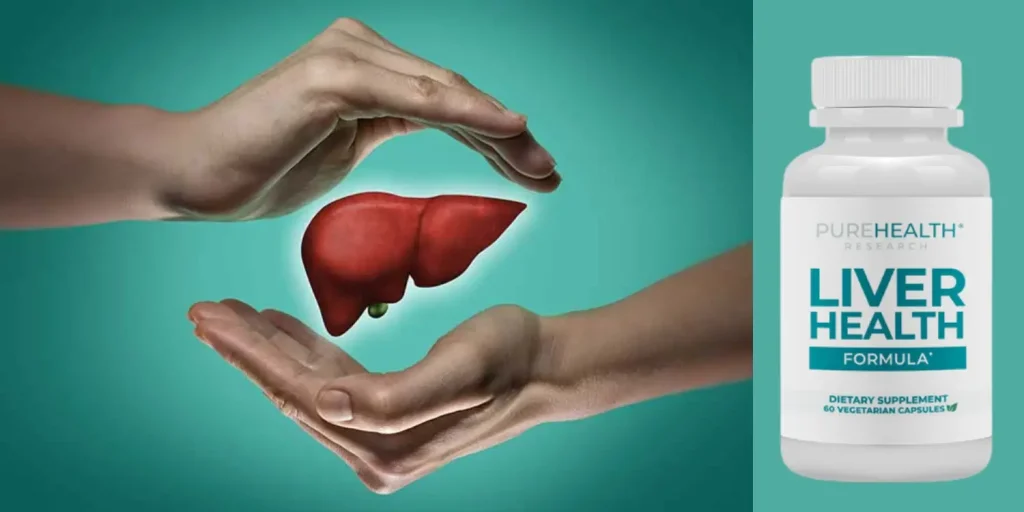Introduction about Liver Health?
Your liver is not only important for a single aspect; it also affects your overall well-being. It is the organ that cleanses the body and metabolizes the nutrients it receives for energy in order to assist digestion. It converts nutrients into energy, filters toxins out of the bloodstream, regulates blood sugar, stores vitamins, produces proteins necessary for blood clotting, among many other functions. Poor diet, excessive alcohol intake, chronic viral infections, some medications consumption, and many others gradually reduce the liver function. One must maintain liver health to avoid fatty liver disease, cirrhosis and liver cancer.
Healthy Liver: Of course, engaging in whole foods to eat ample servings of fruits, vegetables, and healthy fats while forbidding intake from alcohol and applied foods in the diet improves the function of the liver. Regularity in doing some physical activities and drinking enough water also greatly benefits the level of functioning of the liver. Having regular medical check-ups can be coupled with awareness on certain symptoms of early signs of liver disease that include fatigue, jaundice, and abdominal pain. Striving towards healthy liver functioning through lifestyle changes as well as preventive measures makes it possible to live longer health

How can I improve my Liver Health?
To keep your liver healthy, you should keep a balanced diet. Above all, be on hawaii-centric diets which are full of fruit and vegetables, whole grains, and lean protein. Antioxidants include leafy green vegetables, fruits, like berries, and healthy nuts; consumption of these may deeply lower oxidative stress and inflammation in the liver. Healthy fats include avocado, olive oil, and fish.
First, it means abstaining completely from alcohol, which will overburden the liver and lead to fatty liver or cirrhosis found within. . . , aside from processed food, sugar, and unhealthy fats, . These other types of havens, too, could contribute to less workload at the liver. Drinking a large amount of water is another important requirement for liver health.
Exercises make a significant contribution in preventing a fatty infiltrated liver from developing and may discourage the initiation of non-alcoholic fatty liver disease. Maintaining a healthy weight falls within the scope of its prevention; as one recognizes, being overweight is a vital contributing factor to developing liver-related problems.
Medication use should not exceed a certain threshold; thus, being very selective on supplements would become liver toxic occasionally. Regular health screenings and liver function tests would also contribute to identifying problems early and preventing their progression to more complex conditions.
What foods are good for Liver function?
Some specific foods really have a way of boosting liver function and promoting overall liver health-they complement what could be described as a well-balanced diet so that the liver works well in performing its vital detoxification, digestion, and nutrient processing roles to the maximum extent possible.
Leafy greens like spinach, kale, and arugula are some of those whose high content in antioxidants and chlorophyll makes them agents of detoxifying the liver from the poison toxin. They comprise a special classification of vegetables alongside fruits such as broccoli and Brussels sprouts which have high fibers and compounds known to be sulfur, basically stimulating the liver to form enzymes that support detoxification processes.
Berries, oranges, and apples are part of fruits rich in antioxidants and protect the liver from oxidative stress. The presence of anthocyanins in blueberries, raspberries, and others is said to contribute to the good health of the liver, and among the different citrus fruits, there is an added value of lemons and oranges that can increase the production of enzymes that aid in detoxification.
Healthy fats found in avocados and fatty fishes such as salmon and mackerel provide omega-3 fatty acids that reduce liver inflammation as well as inhibit fat accumulation. Another great source of healthy fat is olive oil, and this benefits the liver in several ways-smoothens liver functions and promotes fat metabolism.
They are full of omega-3s and antioxidants for detoxifying the liver. These are walnuts, as well as a couple of other anti-inflammatory foods which include garlic and turmeric because they provide beneficial health to the liver by protecting and promoting the health of the liver. These foods combined with a healthy, balanced, varied diet will benefit anyone’s liver in the end.

How do I know if my Liver is Healthy?
A health indicator for the liver is keeping a watch on the body and having regular check-ups with healthcare professionals. For example, in the early stages of liver dysfunctions, the signs may not appear quickly, and some common indicators of a healthy liver are tapering energy fluctuations, clear skin, healthy digestion, and balanced weight. If things are well with the liver, probable unexplained fatigue, disturbances in digestion, or abdominal pain are otherwise absent.
Some specific signs involve jaundice or yellowing of the skin or eyes, fatigue that does not fade, very dark urine, pale stools, weight loss without any obvious cause, or swelling of the abdomen or legs. Sometimes, nausea and vomiting can be consequences of liver disorders.
The best way to know about the liver health is to do the blood tests, which includes the routine liver function tests (LFTs) that test for enzymes, proteins, and bilirubin components in the blood. The doctor could even suggest certain imaging tests like ultrasound or MRI, which may help include measuring the size or structure of the liver, or provide some assessment about damage.
Often early detection of a problem through investigation allows managing the aspects of liver health properly.
What are the signs of Liver damage?
The symptoms of liver damage may progress slowly and sometimes become quite vague before showing signs of serious illness. However, there are specific symptoms of liver problems, most of which must not be ignored. Fatigue or tiredness is one of the earliest and most common signs of liver damage. You may feel drowsy despite having had enough rest, and as the liver function continues to decline, you may also notice digestive problems such as nausea, vomiting, loss of appetite, and fullness after eating a minimal quantity of food.
Another key indicator of liver damage is jaundice, the yellowing of the skin and/or eyes due to excessive accumulation of bilirubin, a solution which the liver is incapable of processing within itself. Quite typically, the entry of the bile pigments into urine makes them adopt a more intense coloring, causing the feces to adopt pale tints.
Swollen abdomens (ascites) or legs (edema) may also result from the accumulation of fluid due to liver damage. Some patients may also bruise, bleed easily, and have other forms of body bleeding like frequent nosebleeds or heavy periods because the liver synthesizes most of the proteins responsible for blood clotting.
These symptoms necessitate earliest possible medical attention since liver abnormalities progress slowly and later develop much worse ailments, like cirrhosis or liver failure.

Can exercise help support Liver Health?
Exercise has a very important role in supporting liver health. Regular physical activity contributes essential maintenance of healthy weight as obesity is the most important risk factor for liver disorders including non-alcoholic fatty liver disease (NAFLD). Exercise reduces fat accumulation in the liver so the organ functions efficiently and is less susceptible to fatty liver.
Moderate-intensity aerobic exercises walking, jogging, cycling, really great effect on the health of the liver organ. With better blood circulation, this activity improves liver detoxification and metabolic health. Resistance training or weightlifting is another factor that improves liver health by an increase in muscle mass, which can elevate insulin sensitivity to which regulates blood sugar-a factor to be looked at that also helps liver condition.
Exercise reduces the inflammatory agents and oxidative stress that have been reported to cause damage to the liver. In fact, exercise lowers the level of enzymes in the liver, which are elevated among people suffering from liver injury.
Generally, one must maintain around 150 minutes of moderate aerobic exercises within a week and do strength training about two to three times a week to support liver function as well as overall health.
How does alcohol affect the Liver?
The liver is profoundly affected by alcohol. Heavy drinking over a period of time can result in multiple liver-related problems. The liver metabolizes alcoholic drinks into acetaldehyde, which is a poison in the human body. Lethargic breakdown of large amounts of alcohol overloads the liver with the ingestion of harmful byproducts and causes inflammation.
Short periods of heavy drinking can induce fatty liver disease, wherein increases of fats in liver cells lead to impairment of their proper functioning. This fatty liver condition does not always come with recognizable symptoms; however, it may extend into graver liver conditions such as alcoholic hepatitis where the liver gets inflamed and rotten due to chronic abuse. With time, alcoholic abuses will result in cirrhosis that involves healthy liver tissue dying and forming scarred tissue, blocking and non-functioning thereby resulting in liver failure.
In fact, even moderate drinking over the years causes strain on the liver because alcohol exposure prolongs detoxification. Actually, the liver only processes small amounts at a particular instance, but in large doses, it may lead to a one-time irreversible damage.
However, on a good note, minimal consumption of alcohol on safe levels is important in maintaining liver health, such that it needs to be there on reduced numbers to be termed responsible drinking.

Liver Health Conclusion?
Liver maintenance is something that is extremely beneficial to one’s health because it is well known as the body’s detoxification organ, both in terms of digestion and metabolic regulation. Therefore, the best methods by which the liver would be kept into its fullest functioning would be healthy practices: eating well, exercising well, and consuming alcohol in moderation. Rich sources of nutrients from leafy vegetables and fruits in addition to healthy fats promote liver function and improved metabolism while avoiding high consumption of alcohol with processed food and toxins reduces stress on this vital organ. Hydration will serve as the management of weight and the activity of the sport in keeping the body fit. Systematic activities within this sector are preventing health disorders with respect to chronic liver diseases called fatty liver and cirrhosis. Care and tests within such time periods as regular welfare checks could further include tests of liver function to detect any medics early on and long before symptoms can be apparent.
Much of the preventive measures attributed to the reduction of liver problems have a long-life effect in terms of quality of the life adopted and mainly both long-term and symptomatic damage. Early intervention through healthy habits cleanses the liver and would ensure maximum health and energy for quite a few years ahead.
